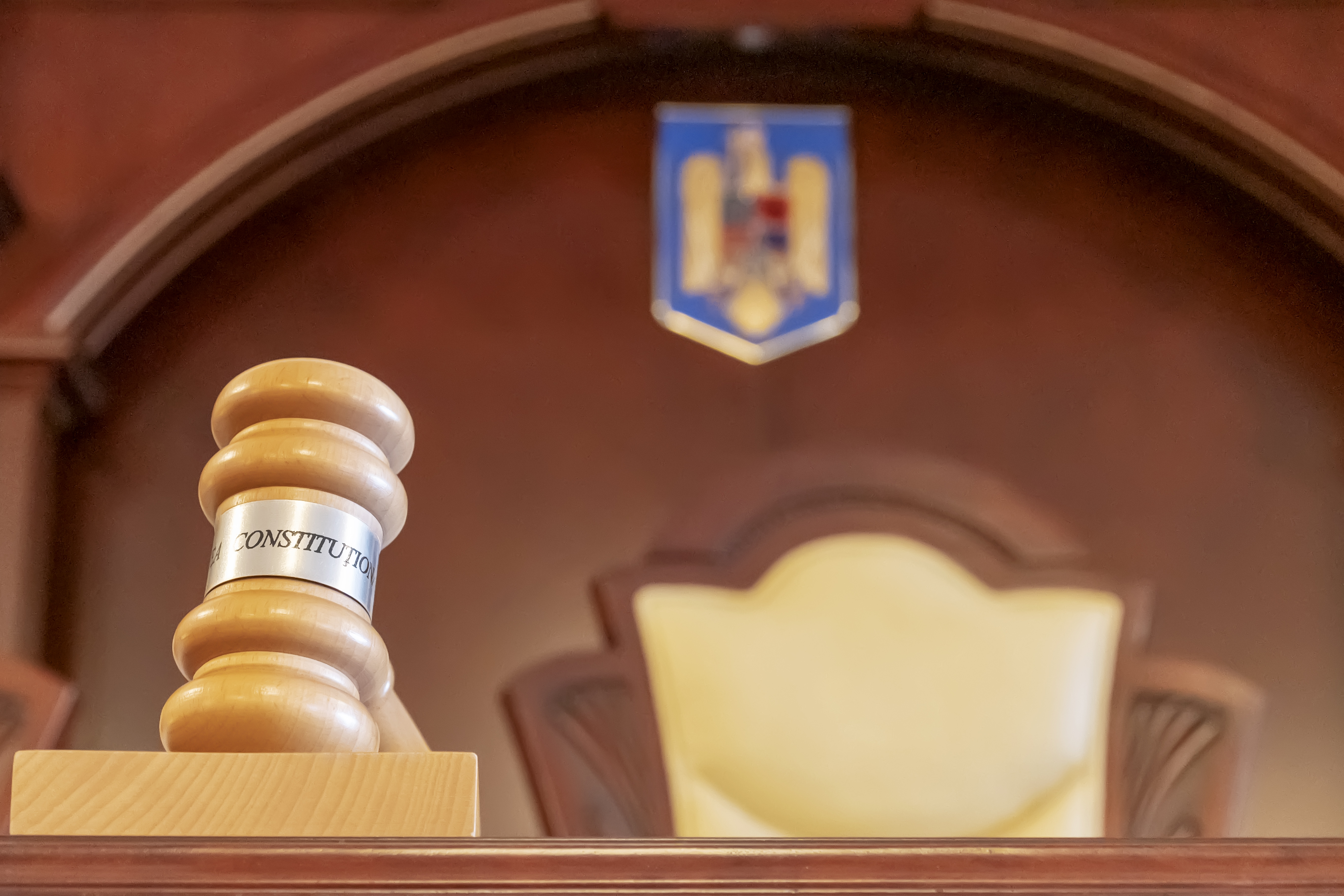Relevant provisions
The power of the Constitutional Court to decide on objections on the constitutionality of a political party is regulated by Article 146 k) of the Constitution and by Articles 39-41 of Law no.47/1992.
Authors of the referral
The objection on the constitutionality of a political party may be raised by:
– the president of one of the Chambers of Parliament;
– the Government.
When the objection is raised by the president of one of the Chambers of Parliament, it is based a resolution adopted by the Chamber (Senate or Chamber of Deputies), by a majority vote of its Members.
Subject matter of the referral
The subject matter of the referral is the settlement of objections on the constitutionality of a political party. The Constitutional Court decides on the constitutionality of a political party, i.e. checks upon compliance with the substantive requirements concerning the political party activity, contained in Article 40 (2) of the Constitution concerning the observance of the principles of rule of law.
Referral to the Constitutional Court
The objection on the constitutionality of a political party has to be motivated, and the evidence on which it rests must be attached thereto.
Within this type of review, the Constitutional Court cannot act ex officio.
Procedure
After receiving the objection in written form, the president of the Constitutional Court shall designate the Judge-Rapporteur, who shall have to communicate such to the political party concerned, together with documentary proof, also specifying the date until when a memorandum in defence and appropriate evidence can be submitted to the Court.
The specific procedure for solving these objections has the following particularities:
– the parties are either the Chamber of Parliament which made the objection, which can be represented by the person designated by the Chamber for this purpose or the Government, which can be represented by the Minister of Justice, as well as the political party, which can be represented by the person in the party’s governance who according to the statute, represents the party in relation to third parties and / or a lawyer holding the right to plead before the High Court of Cassation and Justice;
– the representative of the Public Ministry must attend the proceedings;
– the parties and the Public Ministry are summoned, the order of the debate is that applying in general law, and the trial takes place based on the report presented by the Judge-Rapporteur and on the evidence;
Type of act issued
Within this power, the Court renders, pursuant to the provisions of Article 11 (1) A. f) of Law no.47/1992, a decision. The decision shall be taken by majority vote of the Court’s judges.
Communication of the decision
If the objection is allowed, the decision is communicated to Bucharest County Court for striking the unconstitutional party off from the register of political parties.
Effects of the decision
The decision granting the objection shall be notified to the Tribunal of Bucharest for striking the unconstitutional party off from the register of lawfully constituted political parties, and the specific effect of such decision is cessation of the party’s activity by dissolution. [Article 41 (2) of Law no.47/1992, Article 44 a) of Political Parties Law no.14/2003].




